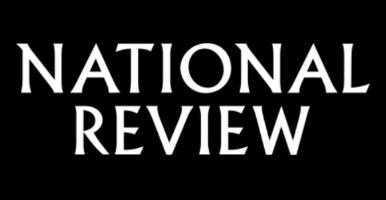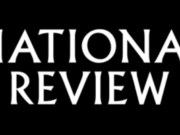This piece originally appeared in National Review on February 13, 2019.
Is it “super legal” for a “bad guy” to fund a congressional campaign entirely with contributions from corporate political action committees (PACs), to use that “dark money” to “pay hush money” and “pay people off” to get elected, and then to reward the “special interests” who backed him? It is, according to Representative Alexandria Ocasio-Cortez, who spoke in those terms last week at a House committee hearing on the Democrats’ 570-page election “reform” bill, H.R. 1. When celebrities and pundits shared a clip of her remarks on social media, it racked up over 36 million views.
Yet each part of Ocasio-Cortez’s scenario misstates either the law or the facts of campaign finance. Let’s unpack it, point by point.
In theory, it is true that a candidate could fund a campaign entirely with corporate PAC money. But PACs have existed for 75 years. To my knowledge, no campaign has ever been funded entirely with PAC money. According to the liberal political-money aggregation site Open Secrets, since 2000 an average of just 21 candidates per election have received even half their funds from corporate PACs.
But what if a candidate were funded solely by them?
Such funding is, by definition, not “dark money.” By law, candidates and PACs alike must publicly disclose all donors whose aggregate contributions exceed $200. “Dark money” is merely a pejorative label for nonprofits — such as the NAACP, the Chamber of Commerce, and Planned Parenthood — that may not legally make campaign contributions, whose donors are private, and whose political speech is therefore both limited and independent from candidate campaigns.
As authority for her next point, that a candidate could use campaign funds for “hush money” and to “pay people off,” Ocasio-Cortez cited a column I published last year in the Washington Post. Unfortunately, she got the column backwards — I argued that campaign funds may not be used for such purposes. As I wrote then, “hush-money payments to mistresses are not really campaign expenditures. . . . These may not be paid with campaign funds, even though the candidate might benefit from the expenditure.”
That takes us to the last point — Ocasio-Cortez’s claim that her hypothetical bad guy could use his power in Congress to reward “special interests.” In particular, she singled out “fossil fuels,” “health care,” and “pharma.”
It’s no revelation that bad guys who win elections can use their power to do bad things. But where does Ocasio-Cortez’s approach leave the “good guys”? To prevent members of Congress from rewarding special interests, we would have to prohibit them from writing or voting on any legislation that affects their donors. Candidates supported by unions would be prevented from voting on labor laws. Candidates supported by environmental groups would be prevented from voting for Ocasio-Cortez’s “Green New Deal.” What kind of democracy is that?
When it comes to business, corporations can contribute to candidates only from PAC funds. Further, when a corporation sells you a gallon of gas or a prescription drug, it cannot deposit the receipts in its PAC. Rather, corporate PACs must raise their funds from voluntary contributions by individual employees and shareholders of the firm. And a PAC may contribute no more than $5,000 per election to a candidate’s campaign.
That means that a candidate hoping to match Ocasio-Cortez’s 2018 campaign haul of $2,084,838 would need the support of at least 417 PACs, if each gave $5,000. Let’s start with one PAC from each of the three industries that Ocasio-Cortez cited as “special interests.”
For “fossil fuels,” we’ll go with the Left’s favorite whipping boy, Koch Industries PAC. For the pharmaceutical industry, let’s take Pfizer Inc. PAC, and for “health care,” UnitedHealth Group PAC. Using data from the Federal Election Commission, we can determine that those three PACs alone represent at least 16,631 individual donors.
To match Ocasio’s-Cortez’s fundraising haul, our fictitious candidate would still need another 414 PACs to help him out. Perhaps we should add a defense contractor — say, Honeywell International PAC. The auto industry? General Motors’ PAC. Telecom? Let’s add AT&T. We now have a total of at least 61,936 individual donors, just from these six PACs.
Ocasio-Cortez has boasted that the average contribution to her campaign was $22. That means she would have had 94,765 individual donors. With 411 more PACs to go, it is obvious that the PAC-funded “bad guy” would be backed by the voluntary contributions of far, far more individuals than financially supported her campaign.
So why does Ocasio-Cortez tar as “special interests” those Americans who voluntarily contribute to employer-sponsored PACs? She expressed concern that these contributors might favor “deregulation.” Meanwhile, she has proposed a 70 percent top tax rate and proposed a Green New Deal that would essentially abolish the aviation, auto, energy, and mining industries, among others. Why is it illegitimate for shareholders and employees in those industries to voice their opinions on regulatory schemes that would leave them bankrupt and unemployed?
The answer seems to be that Ocasio-Cortez believes that political participation by those with opposing views is illegitimate — that her political opponents are, by definition, “bad guys.” H.R. 1 suggests that her views are widely shared in the Democratic party. That attitude, far more than employer-sponsored PACs, is a real threat to democracy.














